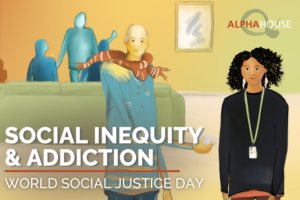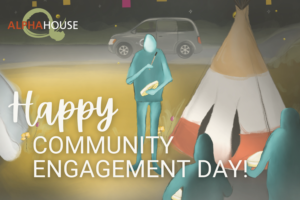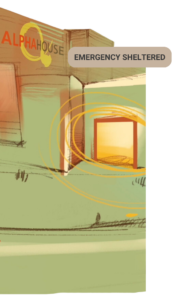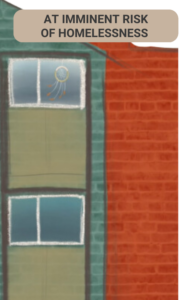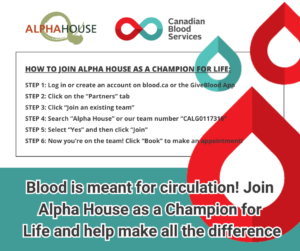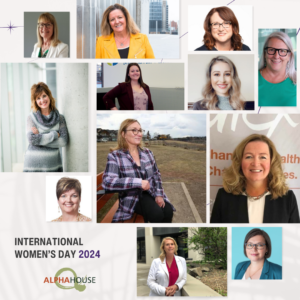Challenges of Well-Being for the Homeless Population
Shaundra Bruvall | April 8, 2025
In honour of World Health Day (yesterday) April 7, 2025, we’re talking about the challenges of achieving and maintaining well-being for the homeless population.
“Feeling good and functioning well” is the most basic way to describe well-being, a topic comprised of many interwoven factors including: personal life circumstances, gender, ethnicity, and trauma. The real-world implications of maintaining one’s well-being are extremely complex.
Let’s consider the personal life circumstance of being without consistent, adequate housing. Homelessness impacts every aspect of your health and wellbeing. Lack of mental health supports, discrimination in healthcare and housing opportunities, and lack of access to basic hygiene or ongoing exposure to the elements are only some of the factors that make maintaining well-being so difficult for those without housing.
Challenges to maintaining well-being and the consequences that follow can be understood through the “upstream/downstream” metaphor.[1] This is based on the idea that well-being in childhood can be used to predict future well-being in adulthood.[2] These findings are in-line with what we see among our clients, in which certain events or incidents or experiences are still causing trauma or challenges in their current lives. Think of a river where the upstream is current life circumstances that impact our well-being, and the downstream is the consequences of the upstream determinants manifesting later in life.
In the context of homelessness, the upstream determinants can be living in poverty and/or living outside, experiencing ongoing discrimination, or experiencing traumatic events. These manifest in the downstream outcomes as mental illness, substance use disorders, impaired cognitive processing, extreme depression and anxiety, or other diseases that impact physical health. Another example might be an individual who has experienced domestic violence, or someone who has faced discrimination/family conflict based on their sexual orientation— a turbulent/unsafe home life and lack of a support system can directly result in trauma, other serious mental health challenges, or homelessness. Upstream and downstream causes are unique to each individual and the life experiences that have shaped them but the concept of well-being building on itself either positively or negatively helps us understand the importance of maintaining our well-being and ensuring everyone has access to the supports they need to do so.
Discrimination in healthcare can manifest in a number of ways— it can be based on appearance, ethnicity, and even mannerisms. Looking “rough” due to lack of housing can impact the quality of healthcare one receives— it takes longer to get the care that you need, and sometimes health concerns are downplayed or downright ignored. Discrimination based on ethnicity due to language barriers, stereotypes and prejudices, or ingrained biases based in racism results in poor healthcare outcomes and can cause people to avoid seeking healthcare all together. Another layer of discrimination is revealed when the individual seeking support is a drug user, especially so if they are displaying certain mannerisms (i.e. looking fidgety, agitated and restless presenting as drug seeking behaviour), making healthcare professionals skeptical and assume that their health concerns are just “drug seeking” behaviours. This means that a drug user who suffered an injury or health complication can have trouble accessing the medication that they need to improve their current health circumstances.
Many homeless people suffer from chronic conditions like respiratory issues and diabetes, conditions that require consistent access to healthcare providers and medication. It often takes advocacy and persistence to receive proper treatment and care even without the additional stressors of being on the street. Homelessness impacts the physical and psychological bandwidth available for focusing on things other than short-term survival, leading to worsening health outcomes.
People experiencing mental illnesses are severely overrepresented among the homeless population. Researchers from the University of Calgary found that 66 to 75 per cent of people who are experiencing homelessness have an underlying mental health condition. Unhoused individuals have few opportunities to interact with psychiatrists and other mental healthcare providers to address these issues. Mental health professionals working in the public sector are relatively few in number, and those who do work in the sector are often overworked with the overwhelming demand for their services.[3] When unhoused individuals are taken to a hospital or holding cell, they are often released back to the street due to a lack of other supports; this cycle makes it very difficult for someone experiencing homelessness to make any strides towards well-being.
At Alpha House, we believe the answer lies in supporting local programs and services that can intervene and help unhoused individuals secure stable housing, access the proper supports, and ensure that people have a place to stay after a hospital or prison visit. Permanent-supportive housing is one of the ways to support this population. Housing that offers 24/7 onsite supports for individuals who can’t live independently and might need interventions for mental health episodes, overdose, and physical ailments. Other interventions such as improved access to mental, psychological, and physical health supports before people become entrenched in homelessness is key. This could mean additional poverty reduction strategies, improved health resources in schools or within employment sectors, and increased social service provisions in hospitals and jails. More understanding and acceptance, and less shame, for the challenges vulnerable populations face is necessary among service providers and the general public so that we can work toward systemic change, and a world where nobody is left behind.
[1] https://www.nature.com/articles/s41572-020-00241-2
[2] https://hqlo.biomedcentral.com/articles/10.1186/s12955-020-01423-y
[3] https://pmc.ncbi.nlm.nih.gov/articles/PMC7525583/#:~:text=Homeless%20men%20and%20women%20have,are%20brief%20encounters%20at%20best.
